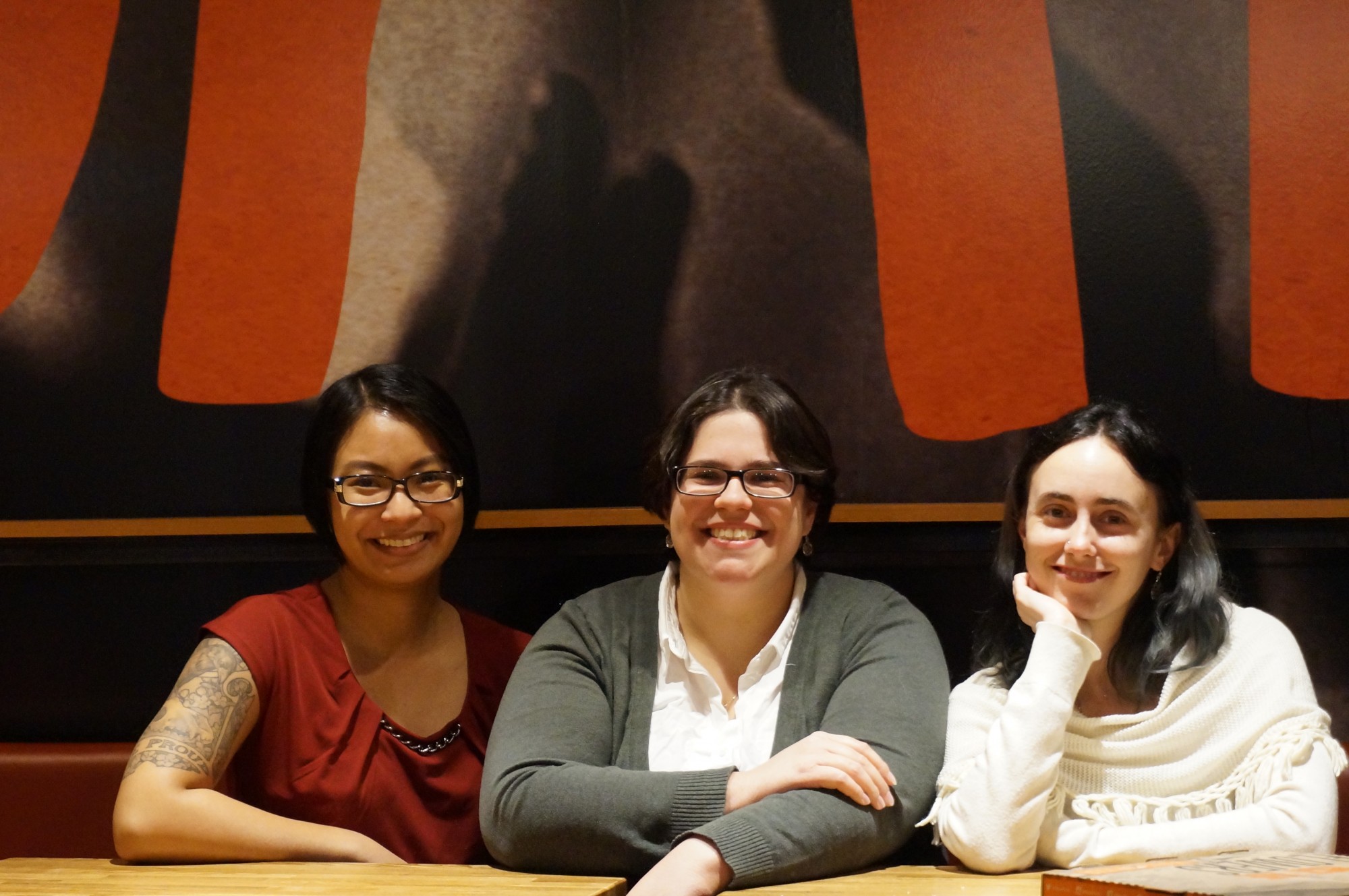By James Whitlow
Amid the din of College Park’s crowded Board and Brew on April 3, not many took notice of the five people discussing Jungian shadows, alternative faiths and the existence of higher powers over lunch.
Five members of The Fellowship Beyond the Star — a non-Wiccan pagan community group catering to the Maryland, Virginia and Washington area — kept the discursive conversation lively while unknowing passersby swirled around their table.
“You’re never going to know you’re walking past five, 10 pagans a day,” said Shannon Pitts, the organization’s secretary and a junior animal sciences major.
But students at the University of Maryland could soon be walking by more. The Fellowship Beyond the Star is in the process of starting a chapter at this university, in hopes of providing support for students seeking alternative religions.
The group’s president, Cat Yimet, and its vice president, Angelica Martinez, formed The Fellowship Beyond the Star to provide a community structure for non-Wiccan pagans in 2013.
The “beyond the star” in the group’s name is a reference to pentacles — the star amulets commonly associated with Wiccan beliefs and witchcraft — and how the group includes pagans of all denominations.
Yimet said several other pagan groups expect members to have an understanding of Wiccan practices, but The Fellowship Beyond the Star does not. She said that requirement can be inhibitive to new members and would be counterproductive to campus expansion.
“We’re just trying to reach out to as many people as possible,” Yimet said. “Like, ‘Hey, this is another option.'”
Paganism is about more than witchcraft and encompasses a wide range of beliefs. Because many religions fall under paganism’s umbrella, there is no common doctrine, Pitts said.
Members of the group, who pull deities from disparate mythologies together into their own personalized pantheon, worship several gods in their own ways. The fellowship encourages its members to worship their respective deities any way they choose, such as prayer, song and literature.
“Some people want to find a religion that works for them,” Martinez said.
Pitts said she would like to see paganism discussed more on the campus. Paganism can often be mischaracterized, she said, and a presence on the campus would clarify some misconceptions. It could also potentially invite others to get involved.
“I just want [paganism] to be something that’s talked about,” Pitts said.
Paganism is underrepresented among student organizations, she said, so the fellowship aims to change that. Of the 53 religious organizations on the university’s campus, not one has a pagan focus, according to OrgSync.
The group needs eight students to formally create the club on the campus, but it has had trouble contacting interested parties, Pitts said.
“It’s such a hard hump to get over,” Pitts said, “because there’s no way to contact people who I know would be interested.”
Through discussions like those the group holds twice a month at The Board and Brew, the organization hopes to change the public’s perception of paganism. The fellowship would work to promote open understanding of paganism and work with other campus religious organizations to let students explore alternatives to Christianity, Islam and Judaism, or “the big three,” Pitts said.
“Religion is a lot more than [people] think it is,” Pitts said, “and I want to be able to share that with the campus.”



